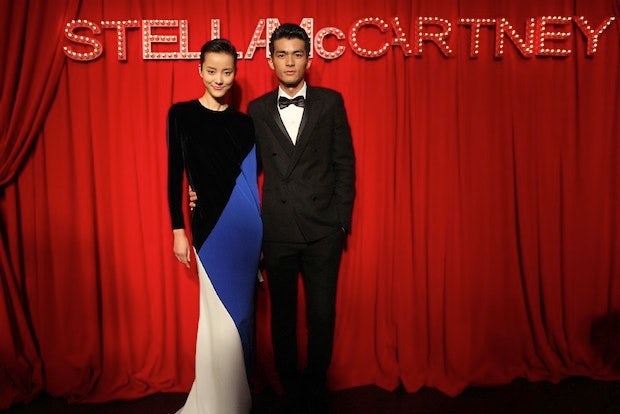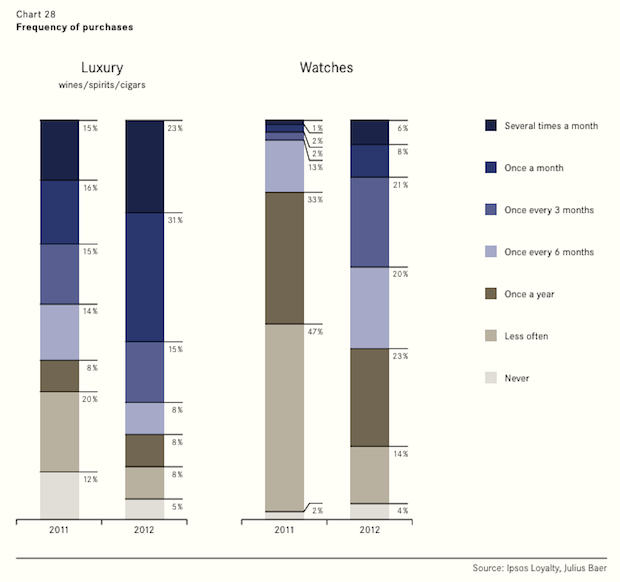For Upmarket Consumers, Special-Occasion Splurges Become Everyday Purchases#

Pei Bei Wang and Zhu Xiao Yin at a recent event celebrating designer Stella McCartney's China expansion. The report cites McCartney as one of the designers gaining in popularity in China as consumers become more interested in niche labels. (Women's Wear Daily)
Swiss bank Julius Baer released its third annual "Wealth Report" today, and its findings on China reflect several key trends that we've been seeing for a while now: a growing number of affluent Chinese consumers are viewing luxury purchases as "lifestyle" rather than "celebratory" acquisitions, and are becoming more sophisticated with a greater interest in niche labels, quality, authenticity, brand heritage, and understatement.
"Today's affluent Chinese consumers see luxury as a way of life, not just the occasional purchase of a good or service, separate from the rest of their lives," read the report. The frequency of goods purchased among affluent individuals has been increasing, as indicated in the chart below comparing 2011 and 2012. The numbers for 2013 may be different for heavily gifted sectors such as watches and spirits, which are feeling the effects of the government's current luxury crackdown, so future studies will need to take into account additional luxury goods in order to gain a fuller picture of purchase frequency.
The report also emphasizes the fact that China's affluent are becoming more sophisticated in a complex variety of ways. "They are becoming savvier about the relationship between quality and price," states the report. It also stresses that Chinese clients have expressed a "growing appreciation for authentic products," are looking for quality and understatement "over the importance of logo," and are tapping into heritage. These changes have paved the way for niche labels, according to the study's findings. "When it comes to the preference for brands, established large brands such as Chanel, Louis Vuitton, Gucci, and Christian Dior continue to dominate," states the report. "But consumers are also expanding their repertoire toe contemporary brands, such as Marc Jacobs, Shang Xia, Shiatzy Chen, Stella McCartney, and Alexander Wang."
